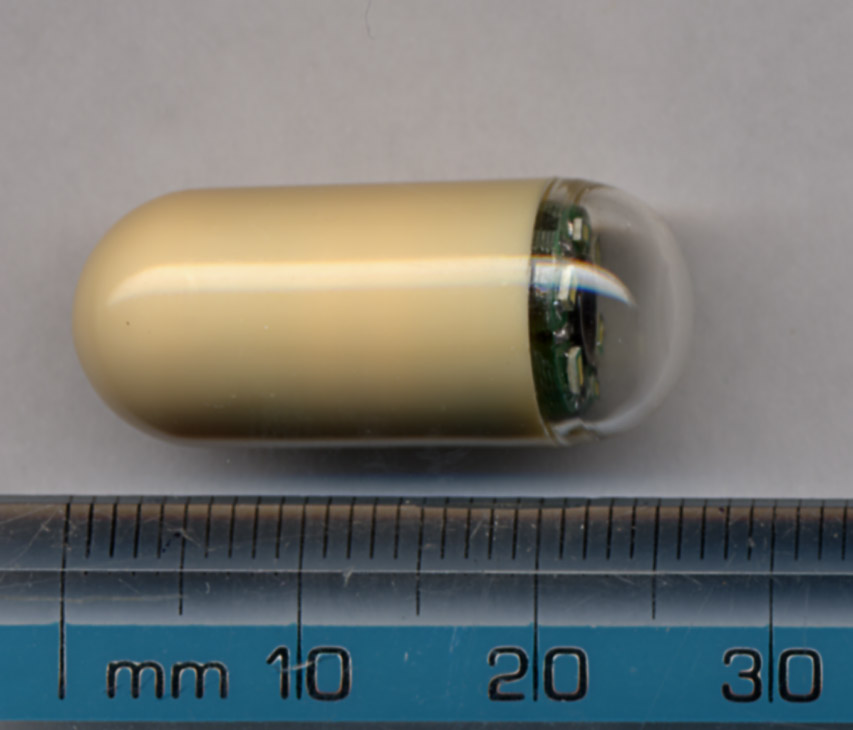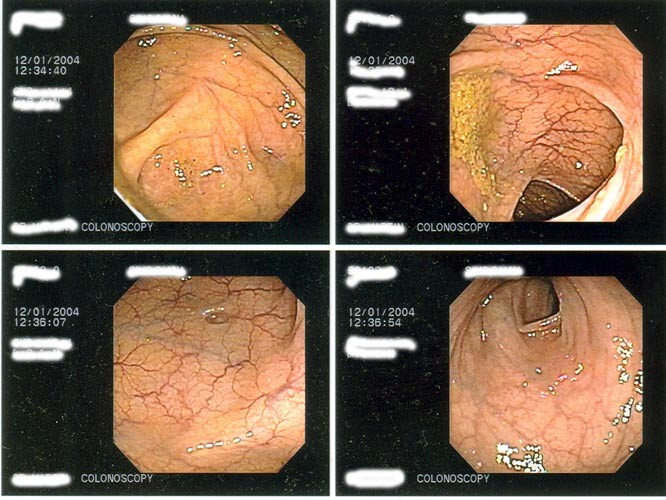Anonymous
Excerpts from a thumb drive sent anonymously to the Kansas City Center for Creative Journalism:
Competitive Intelligence
TO: Herbert G. Ingstrom, M.D.
CC: Darcie Durban, Sandy Simkins
FROM: Samuel Shortsite
SUBJECT: Competitive market research on Crap-in-a-box
Dr. Ingstrom,
In response to your request, the Market Research department has performed an analysis of the impact of the growing market share of DeePen Corporation’s competitor Crap-in-a-box on DeePen sales and services. My research staff are preparing a detailed report, but based on the urgency of your request and our preliminary findings, I felt it was important to provide you with an early synopsis of our discoveries.
The following bullets highlight the major points of the report:
- Crap-in-a-box test volume increased 66% during the last quarter
- 15,000 new providers ordered their first Crap-in-a-box test last quarter
- Almost 1 million Crap-in-a-box tests were ordered last year
- Over 147,000 providers have ordered Crap-in-a-box tests over the past two years
- During the past two years, Crap-in-the-box has grown from no market share to almost 5% of the market
- DeePen sales have flattened over the same two-year period.
- The pool of potential clients has grown over the past two years, masking some loss of DeePen sales to Crap-in-a-box.
The full report should be completed next week. Please let me know if you have any questions.
Samuel Shortsite
Director Market Research
DeePen Inc.
Customer Relations
REPLY: Competitive market research on Crap-in-a-box
TO: Herbert G. Ingstrom, M.D.
CC: Darcie Durban, Samuel Shortsite
FROM: Sandy Simkins
Dr. Ingstrom,
Sam’s preliminary market research findings align with the data from provider and customer satisfaction surveys my team has analyzed.
End-users report that they dislike the discomfort and inconvenience of the DeePen colonoscopy procedure. An incommodious three days of dietary measures to clear the colon is described negatively by many patients. The invasiveness of the procedure itself is off-putting for many people. Satisfaction surveys almost universally report that patients prefer that there be a less intrusive method to diagnose colorectal cancer.
Health care providers state that Crap-in-a-box is less risky for the patient. Providers cite that any procedure requiring anesthetics and the introduction of foreign objects into the body has inherent risks, though the risks of the DeePen procedure are low.
On the upside, many clinics recognize colonoscopies provide dependable, predictable and important revenue. Gastrointestinal facilities have been constructed that maximize staff efficiency and patient throughput. Healthcare organizations have made a considerable investment in these specialized facilities and would be loath to recommend Crap-in-the-box tests that would threaten the income generated by these customized clinics.
In contrast, Crap-in-a-box enables smaller or remote clinics with little gastrointestinal expertise to offer their patients diagnostic services that were previously referred to specialized clinics. The Crap-in-a-box tests open a new source of proceeds for these providers. My team has also noted that patients in less established healthcare markets prefer to not travel many miles for the procedure and welcome the at-home convenience of Crap-in-a-box testing.
Crap-in-a-box testing is less expensive than the DeePen procedure. One might expect insurance providers to prefer the cheaper procedure. However, DeePen and its provider network have established rebates and incentives to insurance companies that make the status quo financially attractive for the insurers. Currently, there has been no observed change in preference by insurance providers.
The lack of change to the insurance business is not an excuse for complacency. There is a risk that as the Crap-in-a-box market matures, our challenger may begin to offer competitive incentives for healthcare insurers. Changes in patient co-pays and costs could disturb the relationships that DeePen and large gastrointestinal service providers have built with the insurance industry.
Respectfully,
Sandy Simkins
Branch Chief Customer and Partner Relations
DeePen Inc.
——————————
Journal of Behavioral Science
Title: The Aging Consumer and Transformation from Gut Instinct to Informed Decision
By George P. Duodenum, Alice R. Peptide, Mark Mucosa, and Patty Protease
Abstract: Maslow’s Hierarchy of needs provides a framework for understanding psychological drivers for consumer behavior. Basic needs for food, water, warmth, rest, security, and safety remain fairly constant throughout a person’s life. However, our research shows that higher level Psychological and Self-fulfillment needs change how a person makes choices as they age. This 5-year study observed more than a million purchasing decisions of over ten thousand consumers living in multiple western countries. Ages ranged from 14 to 75 years.
The research shows that as consumers approach 50 years of age, purchasing decisions change decisively from being instinctive, or gut-based, to put more stock in evidence and the weighing of alternatives. This seems to align with a shift in self-fulfillment needs to demonstrate a person’s wisdom accumulated from years of experience. The result is that older people are less susceptible to marketing campaigns that emphasize emotional gut-level association with a product. Further, older people are more settled in meeting their Psychological needs for intimate relationships with associations built over a lifetime. They do not fill this need by purchasing things that associate them with a group of people to which a consumer aspires to belong.
These findings have implications for how companies market their products to different demographics. Marketing campaigns are often aimed at achieving inroads that appeal to gut instinct. If companies want to improve sales to more mature consumers, they may need to adjust to more cerebral approaches.
———————–

Product Overview
DeePen Confidential
Release Limited to DeePen Corporate Executive Staff Only
Selective Release to Customers and Partners subject to review by the Board of Directors
DeeSide Product Overview
DeePen Corporation is proud to introduce DeeSide, the latest addition to the DeePen family of high-quality gastrointestinal healthcare. DeeSide is a small Bluetooth enabled device that can be implanted with the DeePen Colonoscope. Minor modifications to the Colonoscope that enable the delivery of DeeSide can be made in-situ by DeePen service staff.
The DeeSide device is implanted in the cecum – where the small intestine joins the colon. When the device is triggered by Bluetooth, it stimulates a dopaminergic response that can give a person a deep sense of well-being. The dopamine can also encourage motility – improved flow – which can relieve patient intestinal discomfort and contribute to a sense of comfort.
DeePen software engineers have developed a mobile application that DeeSide customers will be able to download from the App Store to take advantage of the DeeSide device. When a customer experiences gut-pain, they will be able to simply trigger DeeSide with their smartphone and ease the discomfort without the need for pain-relieving drugs.
While the therapeutic value of DeeSide is striking, this amazing device can also greatly enhance the maturing customer’s consumer experience. Recent research shows that as consumers age, they become more likely to rely on evidence rather than intuition to make purchasing decisions. Older people are no longer able to make the gut-level instinctual decisions they made when younger. This increased impulse control can stress older consumers with debilitating indecision when there they do not have enough facts to make an informed decision. DeeSide can help mature adults get back in touch with their gut.
Imagine a potential mature customer using their smartphone to review products and services. Rather than enduring the distracting inconvenience of skipping around comparing product features and price, the DeeSide enabled phone app could provide the potential customer with a gut-level sense of satisfaction for a particular product enabling an instinctual and satisfying purchase. On-premise Bluetooth broadcasts could serve brick and mortar establishments by giving customers reflexive satisfaction upon approaching or entering a store or restaurant.
DeePen reaches millions of customers with their trusted colonoscopy products and procedures. Colostomies have become a right of passage for older adults. DeeSide extends the services that DeePen provides its customers and partners and addresses another waypoint along life’s journey – the decreasing ability to rely on one’s gut for decisions.
DeeSide will be shipping soon. DeePen is expanding licensing options for partners wanting to take advantage of this innovative technology.
DeePen Confidential
——————
Board of Directors
TO: DEEPEN_CORPORATE_BOARD
FROM: Herbert G. Ingstrom, M.D.
TITLE: Existential Threat
Crap-in-a-box has appeared on the board’s agenda a number of times over the past couple of years. Everyone is aware of the threat this technology poses to DeePen’s mainline business. This threat to the future of DeePen is further magnified on the eve of our rollout of DeeSide. Future growth and revenue depend on licensing DeeSide technology to new partners outside of DeePen’s traditional healthcare market. The uncertainty associated with decreased numbers of implants due to Crap-in-a-box’s growing market share could severely depress demand for DeeSide integration with potential partner’s marketing strategies.
I will be scheduling a board meeting to focus on how DeePen can mitigate this existential threat. For DeePen, Crap-in-a-box has declared war, and we should feel justified in taking whatever actions we need to protect our hard-won market leadership. I’ve already instructed my research staff to begin ferreting out any negative information about the opposition: false positives and other misdiagnoses, lost samples, contamination, consumer complaints, lawsuits and so on.
I urge you all to begin thinking about this problem and bring your ideas to the meeting.
Best
Dr. Herbert G. Ingstrom, M.D.
Chief Executive Officer
DeePen Inc.
Inspiration
Conversation with friend John who recently used Exact Sciences Cologuard product and used the term crap-in-a-box to describe the test procedure.
Recent experience helping out with transportation for a very close friend who endured the joy of a colonoscopy at a brand new gastrointestinal clinic.
Apologies to Exact Sciences. This story is not about the company, though their transformative testing services served as inspiration. Remember, this is a work of fiction.
http://grantome.com/grant/NIH/R01-DK035783-01A1
Credits
Colonoscopy Pictures: creative commons, ds4832 https://www.flickr.com/photos/diva3/38147184/in/photolist-4nvQ5-26HhuDW-rbmZmW-6db7eg-21d3M3R-RHuYeB-viZPmF-9qHpUb-8FGzF4-4hPdgb-5BLkqm-Hqpn5g-522jQ-5hZoF-5Rdc1L-7FKoYj-5E4gCS-5KWJm7-65jqSr-4hNRpd-7AveoT-4msQef-6UcJRU-4qFSb5-dYv49a-smejuc-mVghxf-4fVGvj-mVgiqN-8RgkW2-dfWQAe-DZsit-8bEAmy-4j7ULb-45WS6-irbVKp-PMLsCT-5B
Endoscope capsule – No machine-readable author provided. Euchiasmus assumed (based on copyright claims). [Public domain]https://upload.wikimedia.org/wikipedia/commons/f/f9/CapsuleEndoscope.jpg
